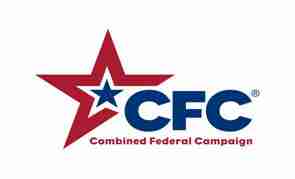American Foundation for Suicide Prevention and the Suicide Prevention Resource Center
American Psychiatric Association Current Procedural Terminology (CPT) Code Changes for 2013
American Psychiatric Foundation
Andrew Kukes Foundation for Social Anxiety: Grant Opportunities
Brain & Behavior Research Foundation - Anxiety Research
Brain & Behavior Research Foundation - Depression Research
Child Mind Institute Resources
Disaster-Assistance Publications
Guide to Suicide Prevention on Campus
Higher Education Mental Health Alliance (HEMHA)
Online Training for Campus Health Professionals
Red Sox Foundation and Massachusetts General Hospital Home Base Program
Share Innovative Health Care Delivery Systems
American Foundation for Suicide Prevention and the Suicide Prevention Resource Center
After Suicide: A Toolkit for Schools. A resource for middle and high schools responding to a suicide, covering crisis response, helping students cope, memorialization, and social media.
American Psychiatric Association Current Procedural Terminology (CPT) Code Changes for 2013
Major changes to the codes in the Psychiatry section of the AMA's manual on Current Procedural Terminology (CPT) became effective on January 1, 2013.
List of new codes from the American Psychological Association
Association contacts for more information
- AACAP: Jennifer Medicus or 202-587-9670
- American Psychiatric Nurses Association: Nicholas Croce, Jr., MA or 571-533-1921
- American Psychological Association: for questions send e-mail or 800-374-2723
- Clinical Social Work Association: Laura W. Groshong, LICSW
- National Association of Social Workers: Mirean Coleman, LICSW, CT or 202-336-8265
American Psychiatric Foundation
Employer Guide for Compliance with the Mental Health Parity and Addiction Equity Act
A concise guide to the parity law, its final regulations, and how it is affected by the Affordable Care Act
Andrew Kukes Foundation for Social Anxiety: Grant Opportunities
Please submit your proposal as a letter of interest. It is essential that the proposed grant request is consistent with the foundation's aims and funding priorities. Find more information here.
Child Mind Institute Resources
Workshops and Training for School Staff – The Child Mind Institute’s team of clinicians is available for professional development workshops (in-person and via webinar) for public, private, independent and charter school communities. Our school talks provide actionable strategies for teachers, counselors and administrators to help support Pre-K through 12th-grade students’ mental health and learning needs.
Disaster-Assistance Publications
Guide to Suicide Prevention on Campus
The Jed Foundation offers a new guide: Preventing Suicide and Reducing Emotional Distress Guide for Professionals
Higher Education Mental Health Alliance (HEMHA)
Postvention: A Guide for Response to Suicide on College Campuses
Institute of Medicine (IOM)
New Report: Psychosocial Interventions for Mental and Substance Use Disorders: A Framework for Establishing Evidence-Based Standards (The IOM is a division of the National Academies of Sciences, Engineering, and Medicine.)
Literature Review
Suicide Prevention Interventions and Referral/Follow-up Services
Report from the VA Health Services Research and Dissemination Service examines recent research on suicidal self-directed violence.
Online Training for Campus Health Professionals
The Jed Foundation and the Bob Woodruff Foundation
Helping Our Student Veterans Succeed is a series of PSAs and video features designed to help bridge the gap between student veterans and their civilian peers. (No charge, CE or CME credit until 04/30/14)
PCORI
Funding Announcements The Patient-Centered Outcomes Research Institute (PCORI) Funding Center contains all of the resources applicants need to respond to current PCORI Funding Announcements (PFAs), which are the broad calls for patient-centered comparative clinical effectiveness research (CER) projects based on PCORI's National Priorities for Research and Research Agenda. Learn more details here.
Red Sox Foundation and Massachusetts General Hospital Home Base Program
Download a ToolKit for the Well-Child Screening of Military Children, to help pediatricians and other primary care providers identify and address the signs of deployment-related stress among children and families. Developed by the Red Sox Foundation and Massachusetts General Hospital Home Base Program in collaboration with the Massachusetts Child Psychiatry Access Project (McPAP).
SAMHSA Resources
General Principles for the Use of Pharmacological Agents to Treat Individuals With Co-Occurring Mental and Substance Use Disorders General principles to assist in the planning, delivery, and evaluation of pharmacologic approaches to support the recovery of individuals with co-occurring disorders. It covers engagement, screening, assessment, treatment planning, and continuity of care.
Grants SAMHSA makes grant funds available through the Center for Substance Abuse Prevention, the Center for Substance Abuse Treatment, and the Center for Mental Health Services. Find funding opportunities that support programs for substance use disorders and mental illness, and learn about the grant application, review, and management process.
Pharmacologic Guidelines for Treating Individuals With PTSD and Co-Occurring Opioid Use Disorders Guidelines for medication-assisted treatment for individuals with PTSD and co-occurring opioid use disorders. It covers screening, concomitant treatment, pharmacotherapy, and multiple substances of abuse.
Preventing Suicide: A Toolkit for High Schools Tools to design and implement strategies to prevent suicide and promote behavioral health that respond to the needs and cultures of high school students.
Promoting Emotional Health and Preventing Suicide: New Tool Kit on Suicide Prevention for Senior Living Communities Equips senior living staff with resources to promote emotional health and prevent suicide among residents. It includes guidelines for integrating suicide prevention into ongoing programs, hands-on tools, and comprehensive training manuals.
SAMHSA's Concept of Trauma and Guidance for a Trauma-Informed Approach Introduces a concept of trauma and offers a framework for how an organization, system, service sector can become trauma-informed. Includes a definition of trauma (the three "E's"), a definition of a trauma-informed approach (the four "R's"), 6 key principles, and 10 implementation domains. Free; downloadable
TIP 57: Trauma-Informed Care in Behavioral Health Services Treatment Improvement Protocol: Assists behavioral health professionals in understanding the impact and consequences for those who experience trauma. Discusses patient assessment, treatment planning strategies that support recovery, and building a trauma-informed care workforce. Free; downloadable
Share Innovative Health Care Delivery Systems
The Agency for Healthcare Research and Quality (AHRQ) Health Care Innovations Exchange Web site profiles innovations that are transforming how care is delivered, including use of social media. Report innovations and recount your successes and failures on the site.
Suicide
Ask Suicide-Screening Questions (NIH)
A Prioritized Research Agenda for Suicide Prevention: An Action Plan to Save Lives
After Suicide: A Toolkit for Schools
Suicide Prevention Resource Center
SPARK Talks: Short, provocative, action-oriented realistic videos with knowledgeable leaders in the suicide-prevention movement.
Suicide Safe helps primary care and behavioral health providers feel confident to assist patients who present with suicidal ideation. The app offers tips on how to communicate effectively with patients and their families, determine appropriate next steps, and make referrals to treatment and community resources. More app information here.
World Health Organization
Mental Health Action Plan 2013-2020
This comprehensive action plan recognizes the essential role of mental health in achieving health for all people. It is based on a life-course approach, aims to achieve equity through universal health coverage, and stresses the importance of prevention vai four major objectives: more effective leadership and governance for mental health; the provision of comprehensive, integrated mental health and social care services in community-based settings; implementation of strategies for promotion and prevention; and strengthened information systems, evidence, and research.








